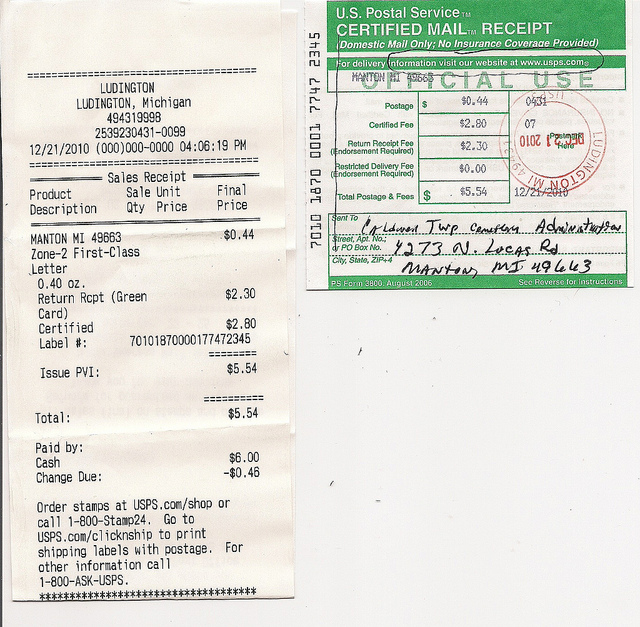Difference Between Quitclaim Deed and Warranty Deed
As a property owner or seeker, the knowledge about deeds is crucial. A deed is a simple piece of paper that contains language of conveyance and whose role is the transfer of ownership of real estate from one entity or person to another, hence can change the ownership of a piece of property. There are several types of deeds, but we will discuss quit claim deeds and warranty deeds. Although both have the power to convey a piece of property from one party to another, they do not have the same protection to the parties involved.

What is Quitclaim Deed?
This is an instrument that passes any claim, title or interest the grantor has in a property to another party. It, however, does not offer any guarantees as to the validity of such title, interest or claim. This means that one can buy property and receive a quitclaim deed then later find out that the sale was not legally made.
This type of deed is mostly used when the transfer of ownership in the property does not occur as a result of a traditional sale. For instance, a quitclaim deed is used in cases where
- Property is conveyed through a gift, a will, or in a divorce settlement.
- When someone is willing to sell a property but is not sure whether any other claims can be made on the property
What is Warranty Deed?
A warranty deed is a document guaranteeing that no other person has the right to the property being transferred.
A warranty deed provides that;
- There is no-one who has the right to use the property as collateral, such as lenders and creditors
- The grantor has the right to transfer the property as the rightful owner
- The property cannot be claimed by anyone else, and if it happens then the buyer has the right to full compensation.

Similarities Between Quitclaim Deed and Warranty Deed
- Both deeds deal with the transfer of ownership of property from one party to another.
- In both deeds, signatures from both parties are involved. This makes it a binding contract between the two parties.
- Both must have a clear language of conveyance.
- Both set out clear real property boundaries.
- Both deeds must be in writing
Differences Between Quitclaim Deed and Warranty Deed
-
Transfer of interest
A quitclaim deed does not create any warranties on the titles of the real estate as it only transfers the grantor’s interest. A warranty deed, however, guarantees the grantor of the rights to the real estate and the legal title.
-
Protection to grantee
A quitclaim deed offers no protection to the guarantee out of any type of deed. This means that if the property has any defects or any claims to it, the grantee has no legal options against the grantor. A warranty deed, on the other hand, offers protection to the grantee, and in case of any informalities or defects, can sue the grantor.
-
Ease of implementation
Quitclaim deeds are simpler to enact hence are more popular. Warranty deeds, on the other hand, have many requirements before they are put into use. They include full property descriptions and also a clear title to the property. Many people hence find them cumbersome to use.
-
Common use
Quitclaim deeds are mostly used in the transfer of property between friends or family members while warranty deeds are commonly used by professional parties.
-
Legal action
In case of uncertainties in the transfer of a property under a quit claim deed, the buyer has no option. However, in a case whereby the transfer was carried out through a warranty deed, a buyer can sue the seller in case of any defects in the transfer of the property.
Quitclaim Deed and Warranty Deed: Comparison Chart

Summary: Quitclaim Deed Vs. Warranty Deed
It is important to choose the appropriate type of deed in different situations. Considerations of protecting the future of an investment should be put into place when choosing a deed type. A quitclaim deed is however termed riskier when comparing between the two. If one is unsure of what type of a deed to use for different types of investments, a lawyer should be consulted and will give guidelines on the way forward.
- Difference Between Profit Center and Investment Center - July 2, 2022
- Difference Between Anti-Trust and Anti-Competition - June 6, 2022
- Difference Between Stocktaking and Stock Control - June 6, 2022
Search DifferenceBetween.net :
Leave a Response
References :
[0]Klessig L. Country Acres: A Guide to Buying and Managing Rural Property. DIANE Publishers, 1999. https://books.google.co.ke/books?id=7i8U9c0nOEUC&pg=PA11&dq=Difference+between+quit+claim+deed+and+warranty+deed&hl=en&sa=X&ved=0ahUKEwjJgOyi67PeAhWhzIUKHYy5Am44ChDoAQhSMAc#v=onepage&q=Difference%20between%20quit%20claim%20deed%20and%20warranty%20deed&f=false
[1]Beuscher Jacob. Law and the Farmer. Springer Publishers, 2013. https://books.google.co.ke/books?id=Zij0CAAAQBAJ&pg=PA101&dq=Difference+between+quit+claim+deed+and+warranty+deed&hl=en&sa=X&ved=0ahUKEwjJgOyi67PeAhWhzIUKHYy5Am44ChDoAQhdMAk#v=onepage&q=Difference%20between%20quit%20claim%20deed%20and%20warranty%20deed&f=false
[2]Goetz Kimberly. An Introduction to Internet-Based Financial Investigations: Structuring and Resourcing the Search for Hidden Assets and Information. Gower Publishers, 2012. https://books.google.co.ke/books?id=wX22_laadbQC&pg=PA50&dq=Difference+between+quit+claim+deed+and+warranty+deed&hl=en&sa=X&ved=0ahUKEwimp_6167PeAhUQRBoKHdwiDIw4FBDoAQgrMAE#v=onepage&q=Difference%20between%20quit%20claim%20deed%20and%20warranty%20deed&f=false
[3]Image credit:https://commons.wikimedia.org/wiki/File:General_warranty_deed_signed_Peter_W._Murphy,_Sarah_A._Murphy,_W.M._Settle,_and_Hattie_A._Settle,_St._Francois_County,_December_27,_1880.jpg
[4]Image Credit: https://www.flickr.com/photos/22738816@N07/5280902391
